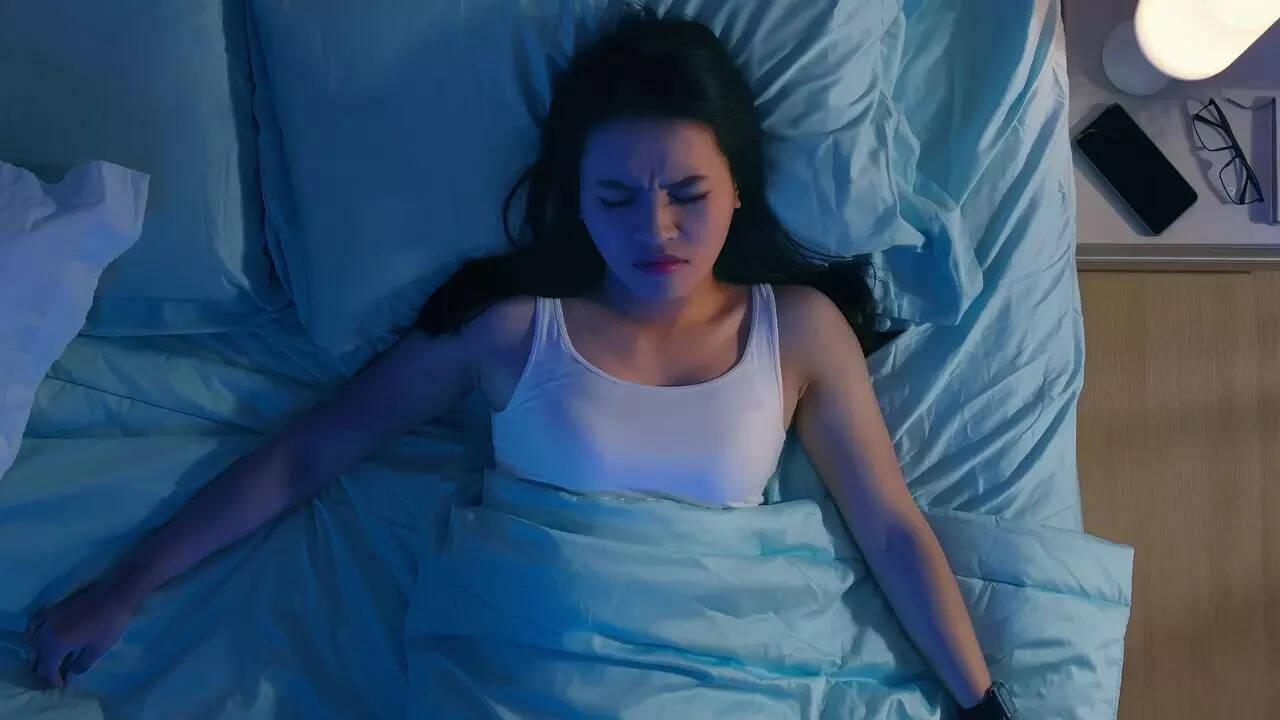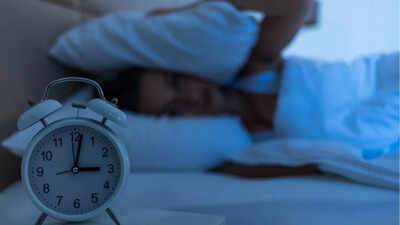
Has this ever happened to you that even after putting the phone down, hours have passed but you still couldn’t fall asleep. Well, expecting a good night’s sleep after hours of doomscrolling isn’t a practical thought. Studies are evident that doomscrolling can lead to difficulty in sleeping. When this happens, tossing or turning won’t help, in fact it will worsen the situation. But what’s the reason behind this hour-long insomnia episode and what can one do to get out of this situation?

Credits: Canva
The reason behind the sleeplessness
Apart from physical factors like caffeine, alcohol, heavy meals, or lack of physical activity some other factors too can affect your sleep.
Mental overstimulation from endless scrolling of videos and posts keeps the brain active and alert. Doomscrolling often leads one to encounter triggering content, which may result in the brain to release stress hormones. Studies suggest stress and anxiety can interfere with falling asleep.

Credits: Canva
Blue Light Exposure from electronic screens affects Melatonin, the hormone that signals the body it’s time to sleep. Several studies have found that exposure to blue light in the evening is associated with increased sleep latency. Another study by Harvard showed exposure to bright or blue light in the evening shifts circadian rhythms.
Doomscrolled already, can the problem be fixed now?
The best thing one can do is create a digital sunset, which means to stop using the phone at least an hour before bed. But many of us aren’t ready for this talk and some are probably reading this after hours of doomscrolling, followed by being unable to sleep. The solution lies in putting a stop on the mental stimulation. Here are some practical and science-backed solutions:

Credits: Canva
- Get up and indulge in a screen-free activity
To break the cycle, don’t keep on lying frustrated in bed, do something that is actually boring, for instance try reading a book. Studies suggest reading a book in bed before going to sleep improves sleep quality.Journaling down thoughts and worries help prevent rumination. This activity can take off the mental load and reduce sleep latency.
- Practice breathing techniques
A Harvard study suggests slow and controlled breathing activates the parasympathetic system and lowers stress hormones. Try the 4-7-8 breathing technique wherein you inhale for 4 seconds and hold for 7 and exhale 8 seconds.

Credits: Canva
Instead of tossing-turning or staring at the clock, focus on creating a calm environment to help your mind settle. Sit under the dim light, away from screens and return to bed once you start feeling sleepy. Things come naturally when one stops chasing them and this goes for sleep as well. Disclaimer: this article is for informational purposes only. Sleeplessness can also be a symptom of underlying health issues. One should consult a doctor if they’re constantly feeling insomniac.








